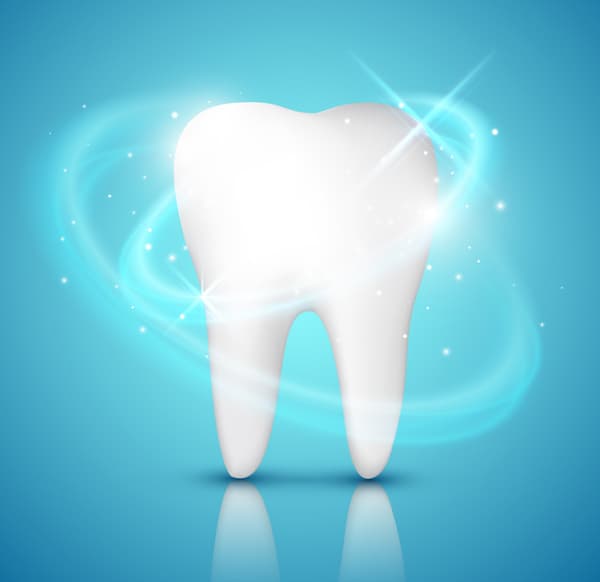
In order to understand this process, you need to know how lost minerals can result in white spots or cavities. The environment in your mouth, as well as products you use, play a key role in the strength of your enamel. Your health, diet and lifestyle all contribute to the state of your enamel, and with the right preventative care, you can continuously remineralize it before it goes away. Young or old – from teenagers with braces to older adults taking prescription medications – anyone can benefit from these enamel-building methods.
Why Saliva Is So Important
The best defence is actually your saliva. The saliva your mouth produces contains minerals that naturally strengthen teeth by cleansing them of common germs. It also keeps the mouth less acidic – a key factor for keeping these minerals and avoiding potential cavities. The healthy exchange of these minerals, namely calcium and phosphorus ions, takes place constantly during the day.
Your saliva keeps your mouth in a neutral or slightly alkaline state. A healthy mouth will have a pH of 7.5 to 8.5 – the ideal level for remineralization. If the pH is lower than 5.5, according to RDH Magazine, it increases the potential for a loss of minerals from your teeth. Keep in mind that certain conditions and autoimmune diseases will affect the salivary flow, and dry mouth or xerostomia can occur. This condition may also be a side-effect when taking certain prescription medications, so it is important to discuss your medical history when visiting your dentist every six months.
Prevention
With saliva being your first line of defence, your diet and oral hygiene habits come in a close second. Diets that are high in sugar, carbohydrates and acidic products like soda – both diet and regular – will compromise your enamel health to some degree. The bacterial plaque that causes cavities is always present in your mouth but can become especially harmful to the teeth when thrown off balance from exposure to these types of dietary choices.
How do you keep plaque bacteria from doing damage? A few routine oral hygiene habits, which should always include:
- Brushing twice a day for two minutes.
- Flossing once daily.
- Use of fluoride toothpaste.
Regular visits to your dentist and dental hygienist for checkups are also needed to examine for cavities or to spot areas of decalcification that may have grown beyond your control.
Products That Remineralize Teeth
Recently, new over-the-counter (OTC) products that help to remineralize teeth have been introduced in the dental market. And although fluoride has been the most widely used product for years, additional formulas and methods of application have shown similar results and popularity. Fluoride fights bacteria, strengthens enamel and is the active ingredient in most toothpaste. Keeping with this trend, new toothpaste has come out that claim to help build enamel and contain fluoride and natural calcium.
Although the commercial market can simplify the process, science will only continue to improve over time. You can help remineralize your teeth with the proper balance of saliva, oral hygiene, dental visits and new OTC products.
